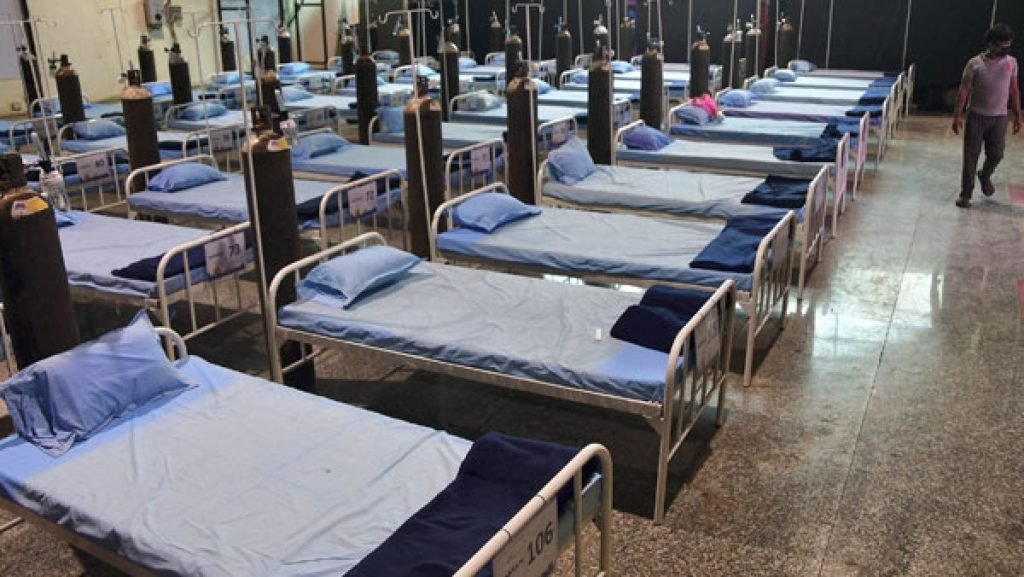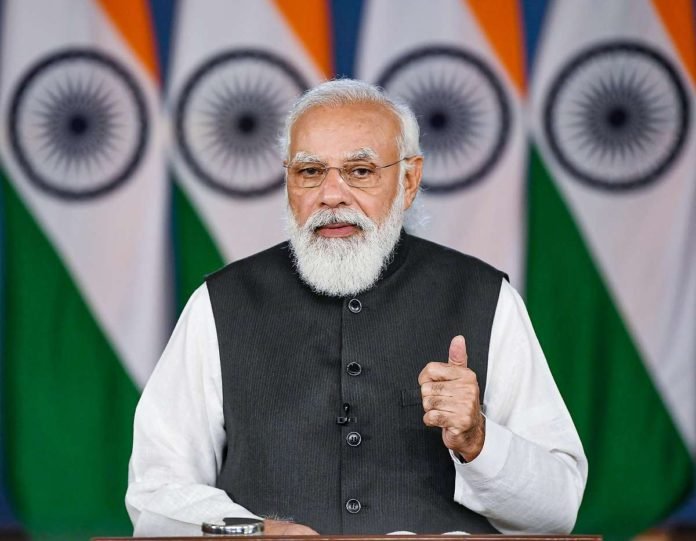With the emergence of the highly transmissible Omicron variant of Covid-19 in several parts of the country, Prime Minister Narendra Modi Thursday emphasised that the fight against the pandemic is not over and directed authorities to send teams from the Centre to states which are reporting a surge in cases and have insufficient health infrastructure.
Modi chaired a high-level meeting days ahead of the Christmas and New Year festive season and directed the officials that “we should be satark (alert) and saavdhan (attentive)” in view of the new variant. After a presentation by the health ministry, he directed the authorities to ensure heightened and close monitoring of emerging hotspots through effective surveillance of cases.
“The fight against the pandemic is not over, he (the Prime Minister) said, and the need for continued adherence to Covid safe behaviour is of paramount importance even today,” the Prime Minister’s Office said in a statement.
On Thursday, India detected 236 Omicron cases, of which 104 have recovered fully. At least seven states have reported Omicron cases in double digits; Delhi and Maharashtra accounted for 129 Omicron cases, more than half the total.
The country’s total Covid-19 active case load stood at 78,291, with the weekly positive rate at 0.59 per cent. Significantly, it has remained under 1 per cent for just over a month. As on Thursday morning, 7,495 new Covid-19 cases were reported.
Amongst those who attended the meeting were the Cabinet Secretary, Principal Scientific Advisor, DG ICMR, Member (Health) in Niti Aagyog, CEO of National Health Authority and Secretaries in the departments of Home, Health and Family Welfare, Pharmaceuticals, Biotechnology, AYUSH and Urban Development.
With districts reporting low vaccination coverage, and likely more vulnerable to the new Omicron variant, the Prime Minister also asked officials to send teams from the Centre to assist states ramp up vaccination coverage. As on Thursday, India had administered 140.31 crore doses with 89 per cent of the adult population having received the first dose and 60.5 per cent both the doses. “PM directed that States need to ensure that the eligible population is fully vaccinated against Covid-19 and to proceed to meet the target in a saturation mode,” the PMO said.
The Prime Minister also directed the officials to further accelerate the testing for quick identification of cases and for time containment and treatment, and specifically asked states to send adequate number of samples for genome sequencing in a prompt manner.
“Heightened and close monitoring of emerging clusters and hotspots through active, prompt and effective surveillance should continue. The focus should also be on effective contact tracing for curbing the spread of the transmission,” Modi told the officials, the PMO statement said.
Modi asked the officials to strengthen health systems at the district level to meet any challenge posed by the Omicron variant. He instructed them to ensure oxygen supply equipment are made fully functional and direct the states for effective use for teleconsultation.
“He directed the officials to work with the states on a regular basis and review the status of preparedness of various components of health infrastructure including training and capacity building of human resources, timely availability of ambulances, readiness of states to operationalise COVID facilities for institutional quarantining, and effective and supervised monitoring of those in home isolation,” the PMO said in a statement.

Besides making a detailed presentation on details of the Omicron cases reported in India, including their travel history, vaccination status, and recovered status, the official also presented details on the availability of drugs, oxygen cylinders, ventilators, PSA plants, ICU, and oxygen supported beds and human resources deployed at the district level.
“Officials briefed the PM about the emerging scenario globally driven by the new variant, with an overview of surge in cases in countries having high vaccination coverage and presence of the Omicron variant. He was also apprised of the Technical Brief and priority actions recommended by WHO in the context of Omicron,” the PMO said in a statement.
More about Omicron
The Omicron variant has been called a variant of concern by WHO based on studies that shows it has several mutations.
Still a lot of research is underway to evaluate its transmissibility, severity and reinfection risk.
The Omicron variant has been detected in several regions of the world. WHO reports that the likelihood of the Omicron variant spreading further globally is high.
It is not currently known if the Omicron variant is more or less severe than other strains of COVID-19, including Delta. Studies are ongoing and this information will be updated as it becomes available.
It is not yet clear whether Omicron can spread more easily from person to person compared to other variants, such as Delta.
However, being vaccinated and taking precautions such as avoiding crowded spaces, keeping your distance from others and wearing a mask are critical in helping to prevent the spread of COVID-19, and we know these actions have been effective against other variants.
Researchers are looking into any potential impact the Omicron variant has on the effectiveness of COVID-19 vaccines. Although information is still limited, WHO believes it is a reasonable assumption that the currently available vaccines offer some protection against severe disease and death.
It is also important to be vaccinated to protect against the other widely circulating variants, such as the Delta one. When it’s your turn, make sure to get vaccinated. If your vaccination involves two doses, it’s important to receive both in order to have the maximum protection.
According to WHO, early evidence suggests that people who have previously had COVID-19 could be reinfected more easily with Omicron, in comparison to other variants of concern. Information is still limited though and we will share updates as it becomes available.
Source: UNICEFRead more Health News
Latest update Omicron

